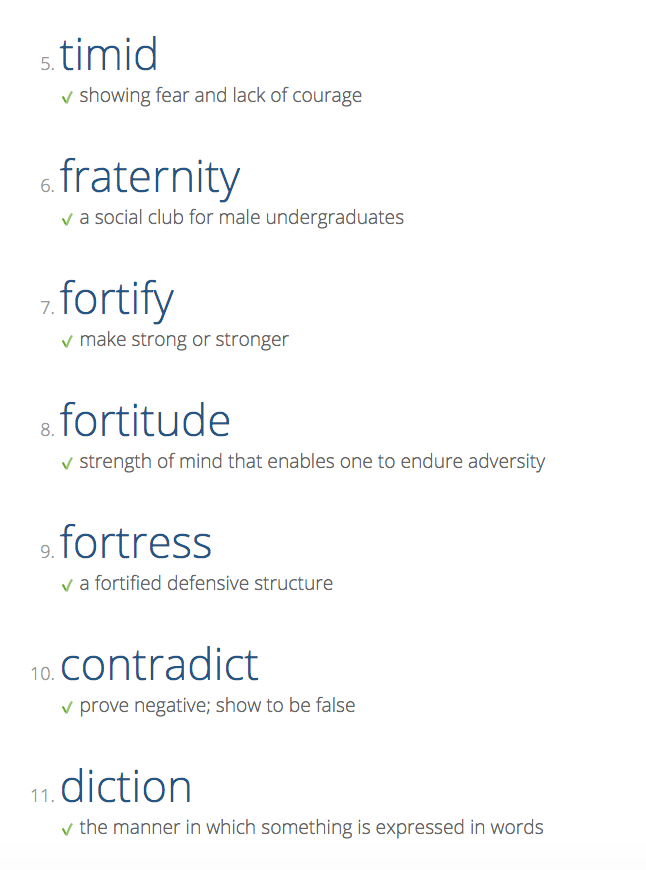Etymology Activities in Middle School
How to Infuse Etymology into Latin Class
Because etymology is my favorite aspect of Latin instruction (or maybe tied with Ablative functions), I embed as much etymology as humanly possible into my instruction. And while I admit that I am a selfish teacher who chooses her activities based on her own preferences, it is true that more than half of my students say that etymology is their favorite part of class as well.
Here are 7 ways I apply etymology to my lesson plans:
Etymology Trees
o Students work in teams with giant post-its to draw a tree with many branches. At the roots of the tree, they write a Latin word and then on the branches they write English derivatives. I usually come up with a list of roots I know will have a good amount of English derivatives.
Derivative Notes + Vocab Jams
o After taking notes on our vocabulary for the week & which English words derive from them, I pop that list into vocabulary.com and press a button “Create a Jam”. Students then join a vocabulary game on their laptops and answer SAT-style questions as teams based on the vocabulary list you entered. Highly recommend!
Equity Maps during Harkness Translations
This year was my first time experimenting with the app Equity Maps, and I love it! On translation days, students sit in a circle and volunteer to translate. I pepper in some grammar, comprehension, and etymology questions. “Gratias, Johnny, and if “relinquere” here means to abandon, what are some good English derivatives?”) Each question they answer correctly gains them a point in the app!
Etymology Club + the National Classical Etymology Exam
In addition to reviewing with Quizlets & Kahoots, Etymology Branium questions are fun!
Etymology EdPuzzles
If you’ve never tried EdPuzzle, it’s a genius service that teachers can try for free. Teachers assign videos that ask questions throughout. The questions can be multiple choice, and graded automatically, or open-ended and graded by the teacher.
·Greek and Latin Roots Day!
What better way to increase intellectual curiosity in your classroom than to spend a day studying Greek and Latin Roots! Here is a related blog post I’ve written, including my favorite three products for Greek and Latin roots.
Golden Apples of Hesperides Etymology Cards!
During my Mount Olympus classroom transformation during World Language Week, students race through the 12 Labors of Hercules which each include a Latin challenge. The “Golden Apple” tree hangs in the center of the room and students jump up, grab an apple, and begin working on the cards inside the plastic apple. Prompts include sentences such as “September used to be the _____________ month of the year,” and students would write “7th” based on their knowledge of “septem” meaning 7.
I also use Greek and Latin Root Google Slides and Guided Notes as independent work for my students. After they brainstorm their own list of derivatives, we go through all derivatives as a class and play a Boggle-style game to see who came up with the most correct answers!






